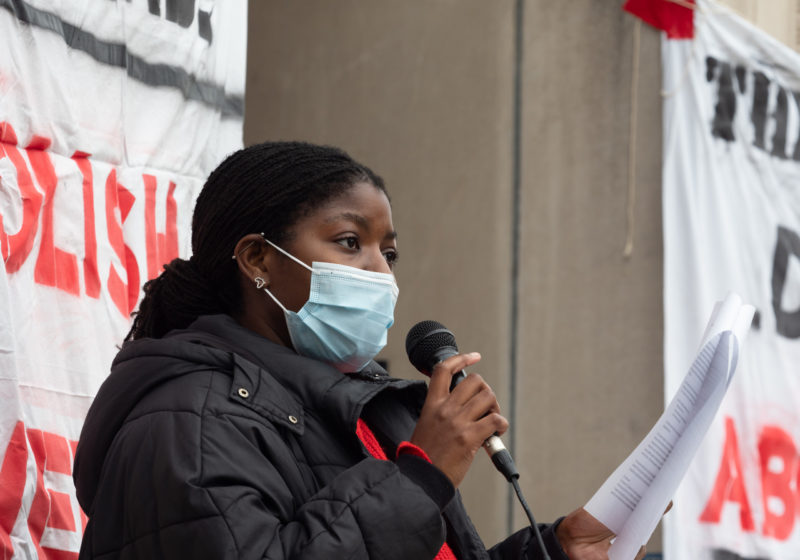On Sunday, Feb. 21 UR Abolition Coalition (URAC) hosted a Zoom town hall meeting that focused on the collective visions of the community, as well as a reflection of student demands. URAC said they will soon meet with President Mangelsdorf to communicate these demands and goals, such as the release of the Department of Public Safety (DPS) budget and disciplinary records, in addition to the replacement of DPS mental health call responders with a trained mental health emergency response team.
URAC began the meeting by welcoming everyone, directly addressing that it was okay for students to disagree with others and that sharing ideas would spread positivity.
“Safety is a feeling,” senior Efua Agyare-Kumi, a member of URAC and former Campus Times managing editor, told the participants. “Your feelings are welcomed and encouraged.” Many members referenced the sit-in and occupation of the DPS lot last semester, many of whom expressed an opposite experience of feeling unsafe and discouraged by DPS and their guidelines.
“It was about intention,” URAC said when asked about the purpose of hosting the meeting to the entire student body. “We wanted to be super transparent with the rest of the student body, which is why it was open to anybody to come, not just URAC members. The demands aren’t URAC’s demands — they’re the student demands and we’re really trying to make sure that anybody who can be involved is involved.”
Recapping their last town hall meeting from the fall semester, URAC discussed how Rochester Business Association (RBA) was working with Rochester high schoolers to encourage UR to interact with the city. It was also expressed that UR should have an organized structure for taking action: “DLH […] and SA [are] being sent in circles a little bit” was one bullet point from the meeting’s presentation. Students also reflected on UR’s Minority Student Advisory (MSAB) working on Aramark divestment as well as the BLM IMPACT petition.
As it was part of the brainstorming process for the meeting with Mangelsdorf, URAC hoped the meeting would engage with the community to ensure their ideas were in alignment.
After reflecting on last semester and their current demands, the participants were split into break-out rooms so students could further express their personal thoughts and ideas.
“Our goal right now is moving forward with administration in a physical and tangible way instead of just promises of having a meeting,” junior Isabel Murphy, one of the meeting’s hosts, said. “Because that’s where we’re at right now and we’re waiting for that to be finalized. Then, we’ll actually move forward with something.”
The URAC hosts agreed that the goal for this semester is up to the students, and URAC will act as a voice for them.
“It’s such an interesting balance between [being] very dedicated to the set demands that we have. But we are also very fluid in that we take from the students; we want to hear their visions and ideas because we never want to be steering the ship without them. We all have a hand on the wheel,” Murphy said.
In addition to URAC’s demands, the UR Solidarity Network is propelled by students hoping to advocate their action plans even after upperclassmen of the organization graduate. Another goal is to interact with more remote students, encouraging them to get involved in the change.
“Everyone here has a purpose,” Agyare-Kumi said. “But we need to come together.”


